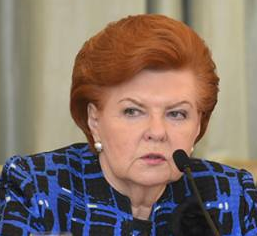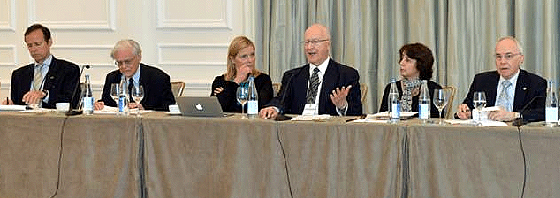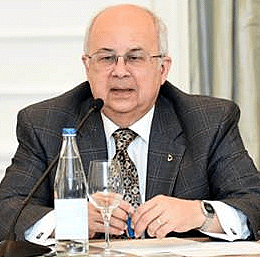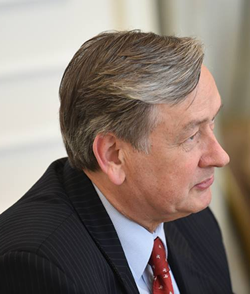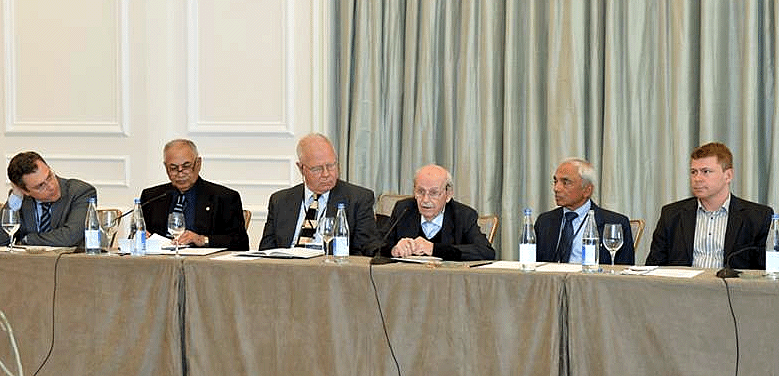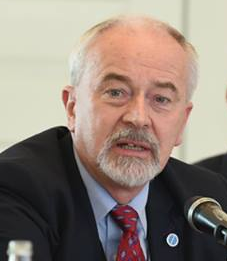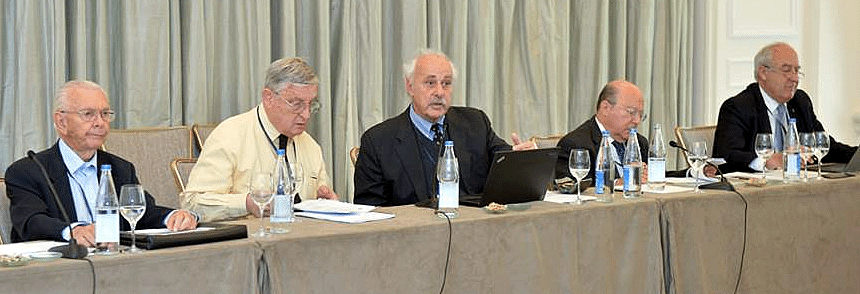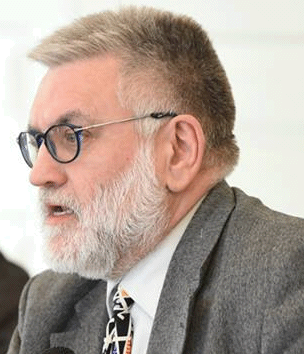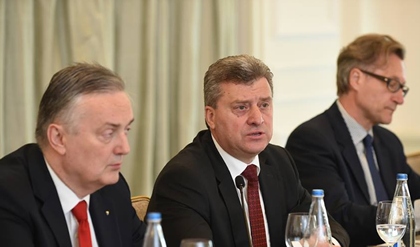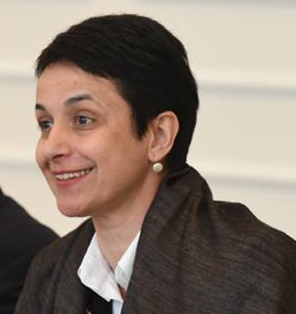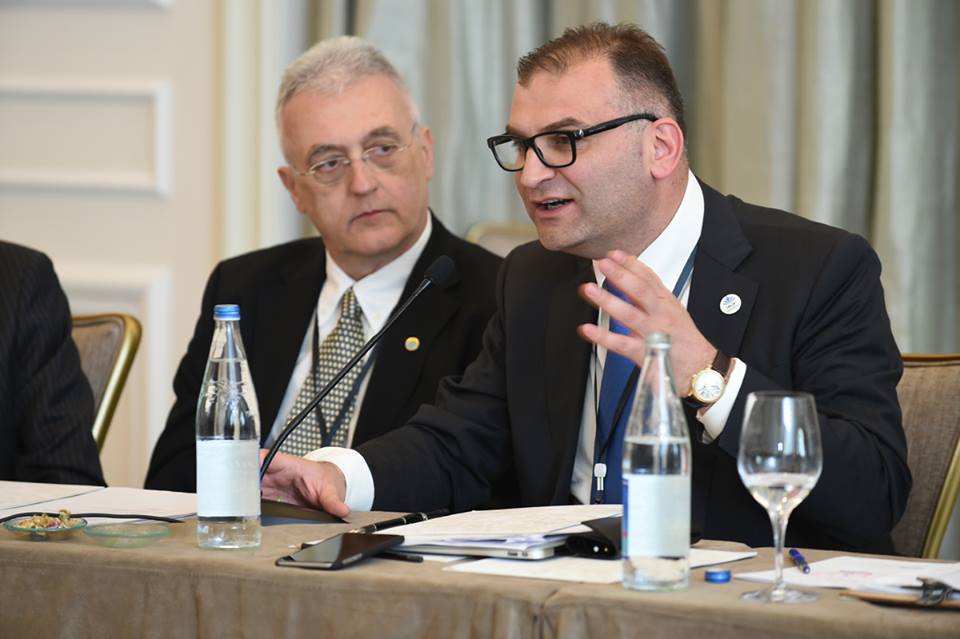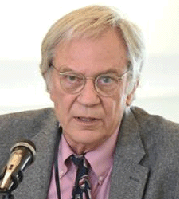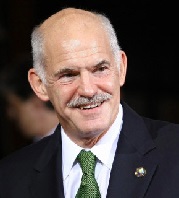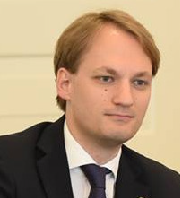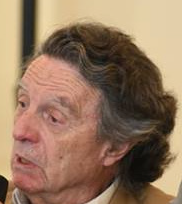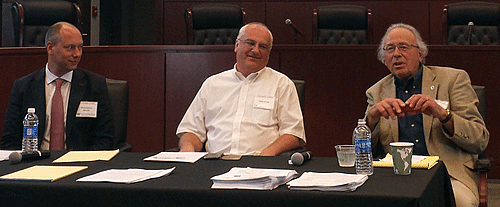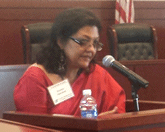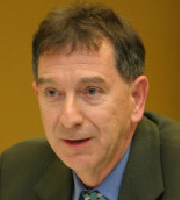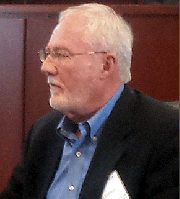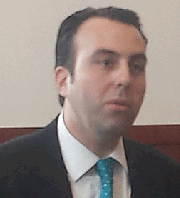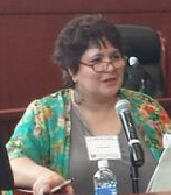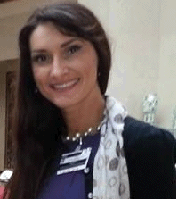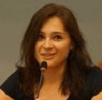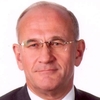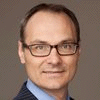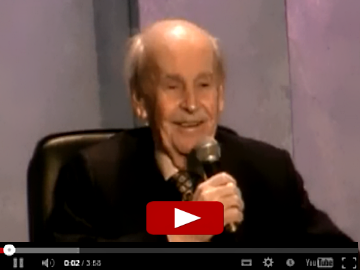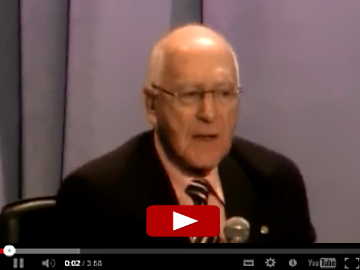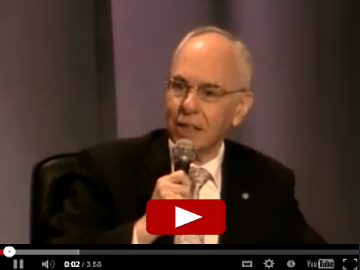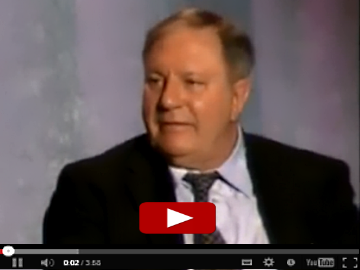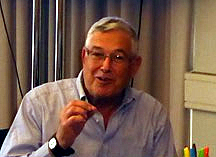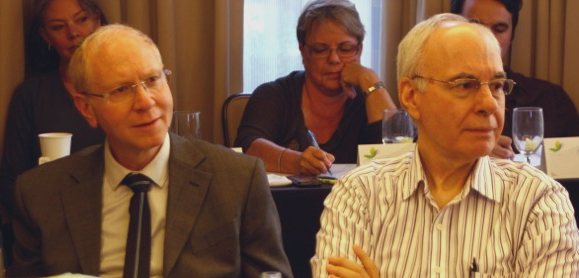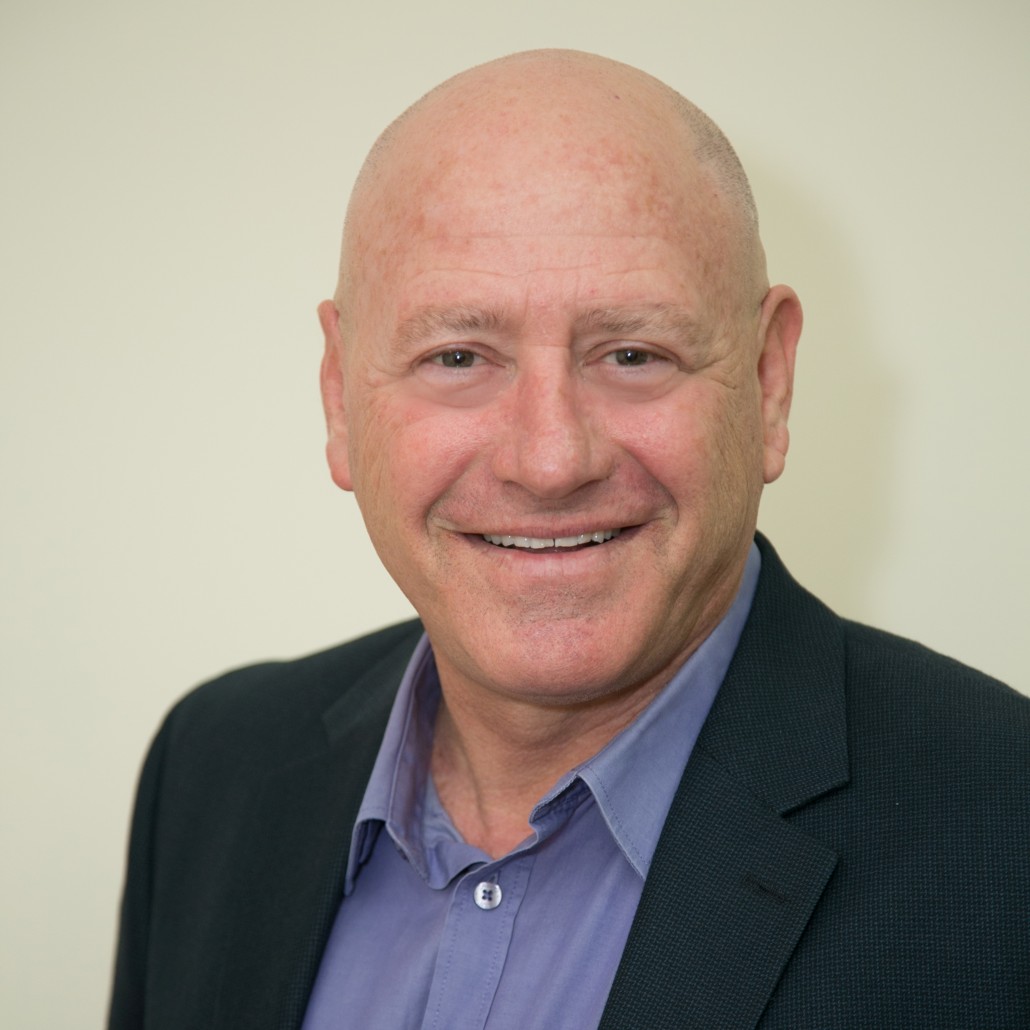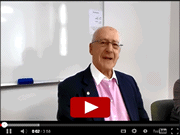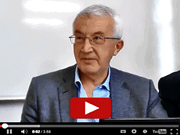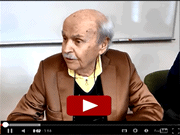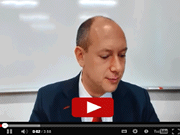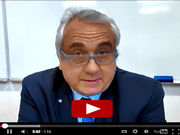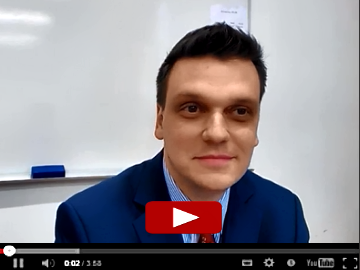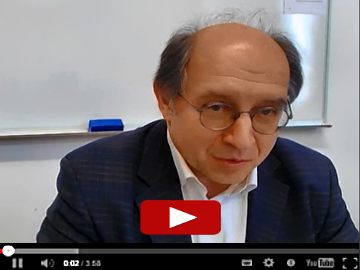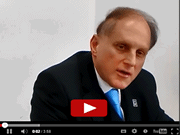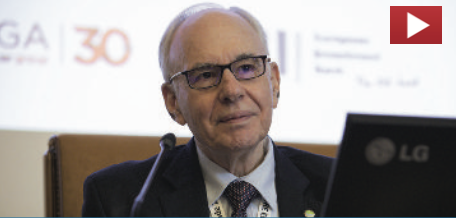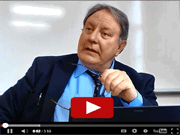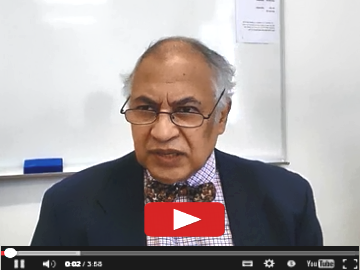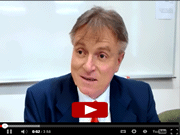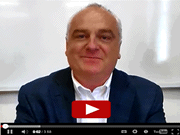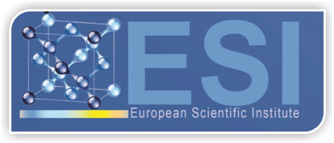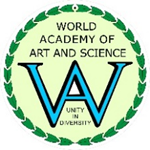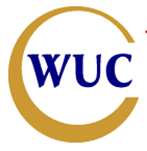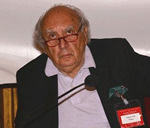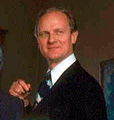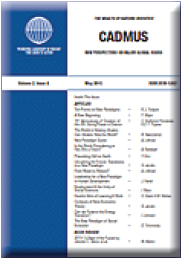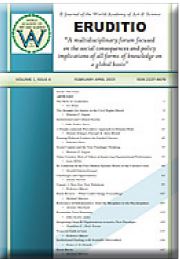| Click here to download the PDF version of the Newsletter | |||||||
 |
|||||||
| Governing a Complex, Rapidly Changing World | |||||||
|
|||||||
|
Humanizing capitalism, transformational leadership, balancing rights with responsibilities, effective democracy as the key to national integration, and political and cultural reconciliation were powerful recurring themes of the three-day International Conference on “Framework for a New Paradigm of Human Development” in Baku, Azerbaijan from April 29-30, 2015 hosted by the Nizami Ganjavi International Center (NGIC). Ivo Šlaus traced the progress of the new paradigm project over the past three years. The global context for the meeting was set by Ismail Serageldin and Vaira Vīķe-Freiberga, co-chairs of NGIC and Fellows of WAAS. Participants included about 65 former presidents, prime ministers and senior diplomats from different countries and 37 Fellows of the World Academy. WAAS organized the final day roundtable discussion among Fellows and selected political leaders on critical issues for transition to a New Paradigm. The world we live in is an expression of the ideas we believe in. The limitation in our thinking expresses as problems in our living. Garry Jacobs traced the failures of our policies and institutions to flaws in prevailing social theory. A new intellectual framework is essential for transition to a human-centered paradigm. Ideas have the Power to change the world. Returning to a central concern of the Academy’s founders regarding the social consequences and policy implications of knowledge, one session focused on the question: What should be the responsibility of science and government for ensu- |
-ring that science and technology are applied in a manner that promotes human security, welfare and well-being? Panelists reflected on the potentially disruptive social consequences and effects of rapid scientific and technological developments and explored ways by which the scientific community and governments could mitigate harmful physical and social impacts without curbing beneficial creativity and innovation. Momir Djurovic proposed that the social sciences could play an important role as a filter influencing how the natural sciences are applied. Roberto Peccei emphasized the dual characteristics of S&T that make it so difficult to arrive at appropriate answers to these questions. Recalling Nobel Laureate and WAAS founder Joseph Rotblat who said, “More knowledge means more responsibility,” Jüri Engelbrecht said it is better to emphasize the responsibility of scientists rather than the general responsibility of science. He stressed the importance of including values, ethics and research integrity in science education and the role of academics in preventing misinterpretation of research and misuse of technology. Former Greek Prime Minister George Papandreou highlighted the pressure exerted by economics on S&T development: “We need to humanize global capitalism. We need to humanize our technologies to make sure they are used, not abused.” Effectively dealing with the rising level of conflict resulting from the growing intensity of contacts between diverse cultures poses a serious challenge to |
||||||
|
|
|||||||
|
Governing a Complex, Rapidly Changing World A New Effort of the World Academy Visions of Sustainable Development: Theory & Action A New Paradigm for Ukraine & the World |
PODGORICA MEETING New Paradigm Progress Report TOWARDS A NEW TRANSDISCIPLINARY PARADIGM WAAS-WUC COURSE SUMMARY FROM THE WAAS ARCHIVES |
||||||
 |
|||||||
|
|||||||
|
humanity. Cultural diversity is at once a major source of social tensions and an immense reservoir of creative human potential. It is the collective dowry bestowed by our common ancestors and the rich gene pool of competencies from which the future humanity will evolve. Nebojsa Nešković identified governance of multi-culturalism as a critical need for transition to a new paradigm. Kakha Shengelia emphasized the particular importance of empowerment of the individual and multicultural relations for the Caucasus and the need for peaceful cultural exchanges. Vesna Vučinić pointed out that teaching anthropology should be promoted at all levels of education as an essential means for understanding multiculturalism. The conference highlighted the fact that escalating tensions between Russia and the West over Ukraine have obscured the deeper root problem of how to evolve an inclusive, global cooperative security system capable of ensuring peace and security for all human beings. Bohdan Hawrylyshyn pointed out the role the Ukrainian youth have played in transforming the country’s economy. The new paradigm, he said, must be based on cooperation as opposed to competition. The conference also examined the essential role of democracy in national and global governance. Internal reforms to promote liberal representative democracy, eliminate corruption, distribute economic benefits and foster cultural harmony are essential for maintaining the integrity of nation states against the internal and |
external forces of disruption now threatening to tear many of them apart at the seams. At the same time an archaic conception of national sovereignty has become a major impediment to the democratization of international institutions and global rule of law. Winston Nagan pointed out that claims to sovereignty rooted in an age of monarchy, war, imperialism, colonialism and slavery are insufficient to establish the legitimacy of national governments today. Liberal, inclusive representative democracy and national sovereignty are inseparable. Sesh Velamoor observed that humanity is at a tipping point wherein fundamental assumptions about the eternal dominance of the nation state or of individual over group and man over nature are outdated and suicidal and proposed a serious re-examination of our most passionately held ideas about ourselves and our place on this planet. David Harries stressed the need to not only continuously review our knowledge and understanding of context as it is today, but to also anticipate what that context is likely to become in future and recommended that WAAS establish a Foresight Committee. A range of experienced political leaders participated in the discussion of a new international framework, including Emil Constantinescu, former President of Romania; Gjorge Ivanov, President of Former Yugoslav Republic of Macedonia; Zlatko Lagumdžija, former Deputy Prime Minister of Bosnia and Herzegovina; Jorge Quiroga,former President of Bolivia; Rosalia Arteaga Serrano, |
||||||
|
|||||||
|
|||||||
|
former President of Ecuador; Danilo Türk, former President of Slovenia; and Vaira Vīķe-Freiberga, former President of Latvia. 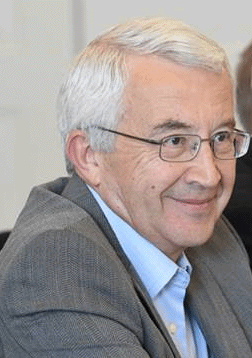 A. Likhotal The rapid pace of globalization, massive movements of people and products, the lightning speed of human interactions have created what Alexander Likhotal aptly terms a tectonic ‘time-quake’ that threatens to divide families and communities from one another, tear nation- states apart at their seams, and convert whole regions into boiling pots of tension and violence. The new paradigm must be a synthetic framework. Likhotal added that policy makers need to consider the economic system as a whole, linking areas previously considered unrelated. As Roberto Poli pointed out, we seem to have lost the capacity to educate generalists capable of dealing with the complex problems confronting humanity today. A new paradigm in economics should reconcile individual freedom with collective harmony. |
Richard Register pointed out that cities are humanity’s largest creations. The impact of old paradigm – mass consumption and endless growth – is wonderfully expressed in the sprawled out city. Building ecocities would be a good starting point for transition to a new paradigm. They can be made to run on a fraction of the energy and generate a fraction of the pollution they do now. 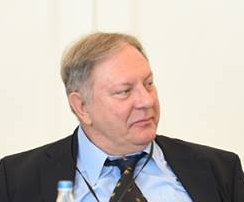 A. Zucconi Alberto Zucconi summed up a core theme of the conference: “The mechanistic-reductionist diagnoses and solutions to the mounting challenges that humanity faces are producing boomerang effects, and are part of the problem, not of the solution. We need to formulate new theoretical solutions combined with prototype projects that show that what we propose is really effective and create a data bank of the effective projects that show that alternatives do exist and that they are viable and can produce concrete results in many fields.” |
||||||
|
|||||||
|
PRESS REPORT |
  |
||||||
|
A New Effort of the World Academy* |
|||||||
|
The World Academy of Art & Science, established in 1960 and composed of a significant number of members from various regions and countries all over the world, organized a successful meeting in Baku, Azerbaijan, in a call to address various aspects that leads to the design of a new paradigm for human development. The intervention of an interdisciplinary group enriched the debate which is likely to continue for a long time. Challenges are many and the approaches are various, with old and new problems emerging with force; but in any case, it is worth highlighting this effort. Academics, politicians, scientists, artists, writers, all gathered together to think of how to build a new paradigm, or if it could be built from the bases that have already been discussed in the past in order not to start from zero. Social responsibility of science and technology, the role of scientists, multicult- |
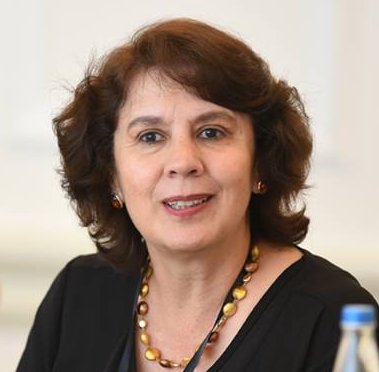 R. Arteaga Serrano -uralism and also issues such as the old concept of sovereignty, were addressed by the participants at the Conference in Baku. The conference also highlighted common topics on how to overcome the challenges we are facing. The Academy’s role is essential in framing a new paradigm. We cannot focus on capabilities and human needs without taking into account nature, environment, mother earth or whatever name is given to it, because in modern times it would be unthinkable not to count the role that these issues require, because no one can overlook or ignore environmental issues. Challenges create opportunities. Both academicians’ experience and young people’s questions, vision and optimism are needed to carve a new paradigm. |
||||||
|
*Press Report on the International Conference “Framework for a New Paradigm of Human Development” held in Baku, Azerbaijan, April 29-30, 2015 by R. Arteaga Serrano. |
|||||||
 |
|||||||
| Visions of Sustainable Development: Theory and Action | |||||||
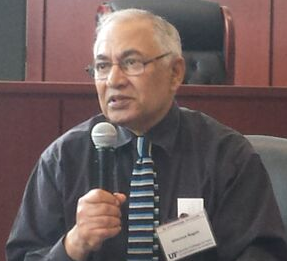 W. Nagan “Visions of Sustainable Development: Theory and Action” was the title of a three day International Colloquium co-organized by WAAS in Gainesville, Florida on May 20-22, 2015 in collaboration with the University of Florida and the University of Brasilia. The 12th in a series initiated in 1997, the conference focused on the need to develop a new theoretical framework for economic theory and practice. One major outcome of the event was the formation of a New Economic Theory (NET) Working Group composed of Fellows and non-fellows drawn from Economics and other social sciences. WAAS will also be co-organizer of the next two international colloquia in collaboration with the University of Lisbon in May 2016 and Stellenbosch University, Cape Town in 2017. Winston Nagan, Chairman of WAAS and host of the conference, led off with a paper emphasizing that economy, governance, society and ecology are inseparable phenomena. Economic theory needs to be made sufficiently comprehensive to include the entire eco-social reality, including the trans-disciplinary social processes, power processes and legal processes on which all social institutions and activities are based. 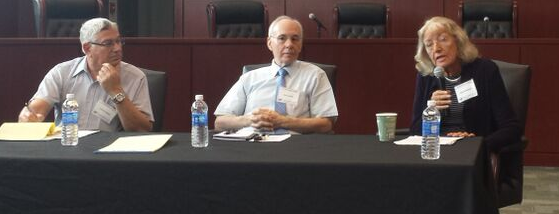 Y. Kahane, G. Jacobs & H. Henderson In support of this call, Garry Jacobs cited economist Robert Heilbroner’s statement in 1971 that “such a new integrating model or paradigm would be the greatest triumph of social science in our time.” Economic theory must be broadened to encompass the objective and subjective dimensions of social reality, the determinative role of the individual microcosm as well as the social macrocosm, the causal impact of future expectations and cultural attitudes. The prominent role of money and political power in distorting the operations of the market economy was emphasized by Hazel Henderson, founder of Ethical Markets. She stressed the destabilizing, parasitic impact of the ‘global casino’ on the real economy and the pernicious role of high-frequency computerized trading, which utilizes the public infrastructure for socially destructive purposes. |
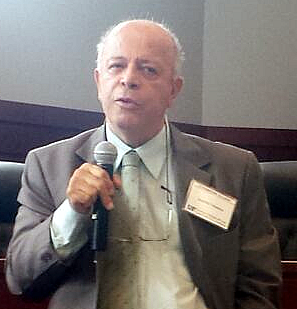 J. Teixiera Yehuda Kahane explained how by a change in perspectives, risk and uncertainty represent real social opportunities, rather than threats. He pointed out inherent fallacies in prevailing economic theory, which ignores or minimizes the value of public goods and the global commons and dismisses other critical factors as externalities. “Today we serve the economy. Economy should serve us and our values.” Challenging the present notion of optimization as too narrow, he called for reframing national accounting systems to include all types of capital and ownership. The founder of the International Colloquium Series, Joanilio Teixiera, presented an alternative composite index for evaluating socio-economic and environmental performance in USA and China. The index demonstrates the feasibility of incorporating other dimensions of sustainability in economic statistics. Maria de Lourdes R. Mollo pointed out critical deficiencies in current theory of globalization. Calling for a reregulation of markets, she challenged the fallacy of market efficiency that fosters concentration of incomes and wealth and reduces choice for consumers. 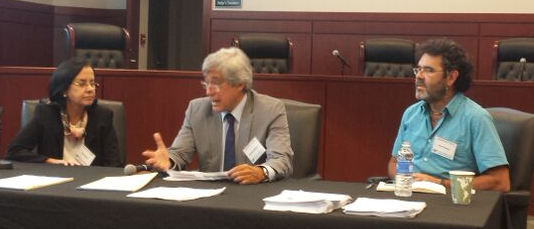 M. R. Mollo, A. Mendonca & M. Swilling Mark Swilling of Stellenbosch University presented an African perspective on the sources of economic crises, long waves and sustainability transition. He argued that the current global economic crisis simultaneously marks the end of the post-WWII long-term development cycle, the mid-point of the information age and potentially the start of a new era of sustainable development. Michael Marien examined ten propositions regarding the emerging organizational macro-system for sustainable development and presented a list of important institutions identified in his research on development of the Security and Sustainability Guide. Pierre-Antoine Barraille and Philip Koenig, founders of Praneo, presented a case study of Caterpillar to illustrate the potential for realigning corporate strategy to maximize both profit and sustainability. |
||||||
|
|||||||
|
Calling on academia to at last cooperate to face global existential threats, Robert Berg proposed measures to stimulate more honest reporting on sustainability issues and to strengthen the UN as a model of good environmental behaviors. Robert Hoffman, a member of Club of Rome, called for development of new tools and synthetic methods to enhance understanding of the fundamental uncertainty in complex systems. He presented a model for simulating inputs and outputs of the global economy that can be a powerful educational tool for demonstrating the need for holistic, integrated thinking. Antonio Mendonca and Maria Rosa Borges, both from the University of Lisbon which will host the next colloquium, examined problems related to foreign investment, trade and the international financial system. |
Chandana Chakrabarti examined the political, social and cultural challenges obstructing progress on sustainable development in India, especially emphasizing the collusion of big business and government. Craig Hammer and Jorge Araujo showed how the shift in thought, institutional structure and policies of the World Bank over the past two decades reflects an evolving understanding of the nature of sustainable development and the most effective strategies for promoting it. The presentations and discussion led to emergence of a remarkable consensus among participants that a major effort is called for to reframe economic theory in the wider political, social, legal, demographic, cultural and ecological context. A list of key issues was identified and a core group constituted to work with WAAS to prepare the framework. |
||||||
|
|||||||
|
New Fellows We welcome our new Associate Fellows elected in the Meeting of the Board of Trustees held in Baku on April 27, 2015.
|
|||||||
 |
|||||||
| A New Paradigm for Ukraine and the World | |||||||
|
Great challenges are momentous opportunities. The multidimensional challenges confronting humanity are unleashing powerful forces compelling movement toward a new paradigm for human centered development both globally and at the national level. Ukraine today is in the process of discovering the truth in this adage. Its experience in converting challenges into opportunities has great relevance to other nations the world over. Both the challenges and the opportunities were explored at a conference titled “State of the World, Need for a New Paradigm and Role of Ukraine in it” organized by the Bohdan Hawrylyshyn Charitable Foundation (BHCF), the World Academy, World University Consortium and Club of Rome in Kiev on April 25, 2015. Leading representatives from government, business, education, civil society and the public were among the 350 participants. The openness, eagerness, energy, positive attitude and commitment expressed by speakers and participants made this a remarkable event. Bohdan Hawrylyshyn emphasized the central importance of human rights and cooperation. “The two keys of the new paradigm are shift to the Universal Declaration of Human Obligations and to more cooperative way of relationships.” A nascent country long ruled by powerful neighbors and yet to celebrate its 25th birthday as an independent nation-state, Ukraine is now struggling to tackle severe challenges on multiple fronts. The conflict waged with a large Russian speaking minority with strong unofficial support from Russia is the most visible and urgent of its problems. But insightful thinkers realize that the most serious challenges for Ukraine lay deeper still in evolving an effective and harmonious social system to accommodate the aspirations of its culturally diverse population, a seemingly intractable problem confronting many far older, more mature democratic states today. The massive display of public support to end two decades of rule by corrupt, self-serving oligarchs is a clear indication that Ukrainians today realize that internal reform of all major political, economic and social institutions is an urgent need for the emergence of Ukraine as a stable, secure and prosperous democracy in the 21st century. Their success can offer valuable insights and hope for people in many other nations. Ukraine needs a new type of transformational leaders ready to shed the legacy of outmoded ideas and decrepit institutions. We live in a time of unprecedented challenges. Unprecedented challenges necessitate unprecedented solutions. Or in other words, unprecedented thinking and resourcefulness in untapping humanity’s potentials.  |
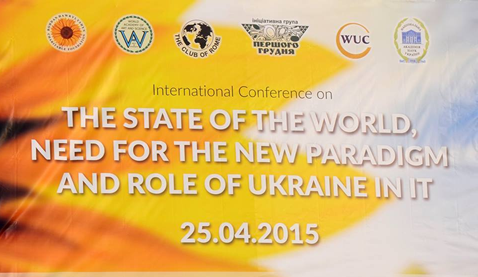 Ivo Šlaus highlighted the deterioration of human capital and pointed out the need for overcoming the problem of increasing destruction of human capital: “the modern world is global, interdependent, fast changing, uncertain and characterized by destruction of natural and human capital. People are destroying the environment and wasting the most valuable human capital”. Garry Jacobs focused on global security-related problems and the failure of global governance overall. At the end of the Cold War, the world missed the opportunity to build a truly global cooperative security system and to extend the principles of democracy to institutions of global governance. “We confront a major paradox: unmet needs, on the one hand, and underutilized resources, on the other. Our potential is greater than our needs”. The current crisis can serve as an opportunity to create a new paradigm, to use resources efficiently for the people’s benefit and abandon the conception of growth for growth’s sake. This means instituting financial regulations that support the real economy, recognizing the right to employment, ecologically sustainable economy, universal access to quality higher education, abolition of nuclear weapons, transdisciplinary social science, and transformational and effective leadership. Alberto Zucconi stressed the need for person-centered education that nurtures and fosters active learning, the capacity for independent thinking and the high values needed by the next generation of leaders. “We need a paradigm change in education in order to enable people to deal effectively with the mounting challenges facing humanity. We need to protect and promote human and environmental capital. Education has to be relevant to people’s needs.” A necessary shift in education is needed from memorization to critical thinking, to provide integrated knowledge in line with an actual social structure. “We have too many teachers and too few facilitators of learning. Education should empower us to cooperate.” BHCF is pioneering a remarkable and unique program to equip a new generation of leaders with the knowledge, skills and values needed to rebuild their nation in a new image. Already more than 400 Ukrainians have been sent to study six model Western societies to bring back fresh ideas and inject them into the life of the nation through their active participation in political, social and commercial activities. BHCF, WAAS and WUC are now planning to develop a model course in transformational leadership for Ukrainians and other youth around the world. |
||||||
|
Modern Challenges and Effective Leadership: WAAS Lectures in Kiev |
|||||||
|
On April 23-24, 2015 representatives of WAAS and WUC presented a series of lectures at leading Ukrainian universities and business schools on the issue of effective leadership, its key characteristics and limits and the complex challenges facing leaders today. The lectures were attended by students of Kyiv-Mohyla Academy, MIM-Kyiv Mohyla Business School and the National Academy for Public Administration. Garry Jacobs cited the example of Steve Jobs to illustrate the characteristics of effective leadership. A common characteristic of high achievers is high energy. The energy they exhibit is not physical energy. It is the mental and emotional energy released by intense aspiration for accomplishment, creativity or progress. But energy, enthusiasm and ambition are not sufficient for high achievement. That energy needs to be directed like a laser beam to become a force for effective leadership. That direction is given by vision, values and goals. Steve Jobs had such a vision. He wanted to create a machine that would serve people rather than replace or dominate them. Even the most powerful leader cannot accomplish on his own strength as a single individual. Effective leaders harness the power of organization to implement their ideas. Organization converts the relations between people into effective power. |
Many people in the organization perform many different actions. The role of the leader is to channel their energy and integrate their efforts into smoothly coordinated system of activities. The key task of effective leadership is to connect people, to learn from mistakes and to show confidence in other people. The problem of effective leadership is not limited to the field of entrepreneurship. Civil society and government also require creative and responsible leaders. Regardless of the field, the essence of leadership is individuality. However, individuality does not mean self-centeredness. The true individual identifies himself with the whole society, he acts not for approval but in order to discover his own creativity. Real leaders motivate others to act in the same way. Alberto Zucconi stressed the central role of education in generating people-centered, sustainable and responsible leadership. The current educational system does little to encourage the development of effective leaders. Leadership is the ability to co-create, to persuade and to involve everybody in the team. That is why World University Consortium is focusing on the issue of how to develop education as a means to foster effective leaders. |
||||||
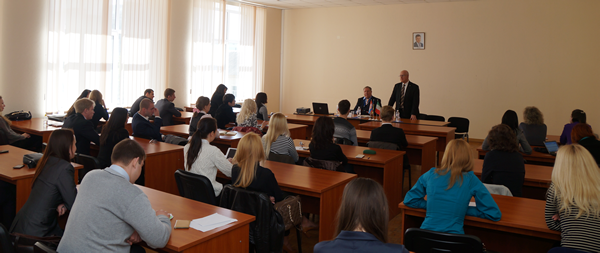 |
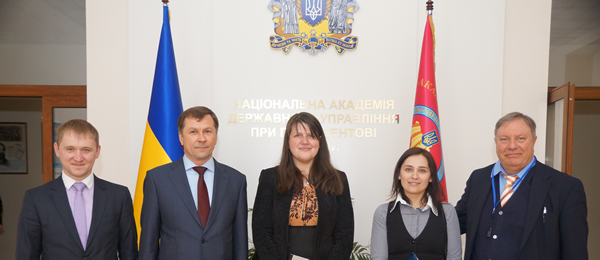 |
||||||
 |
|||||||
| Intentions, Outcomes and Commitments
|
|||||||
|
|||||||
|
In May 2015 WAAS & World University Consortium co-sponsored a unique gathering of expert facilitators, successful entrepreneurs, organizational coaches and trainers, scientists, transformational and spiritual leaders in Irvine, California. This first Global GameChanging Lab was organized by the YK center, Israel, a for-benefit organization with global concerns founded by WAAS Fellow Yehuda Kahane, motivated by the conviction that we must “gamechange” and “reboot” if humanity is to survive. A diverse group of leaders and thinkers explored what it would take to generate a new paradigm in global consciousness to have “Spaceship Earth” become a secure and hospitable home for present and future generations. Prompted by a shared sense of deep urgency regarding our global circumstances, the shared intention of this Lab was to creatively harness the group’s collective intelligence to generate new perspectives for empowerment, collaboration, organizational intervention, community building and spiritual awareness for ecologically sustainable social transformation. Garry Jacobs informed the group of WAAS and WUC programs for development of a new human-centered development paradigm and identified some possible areas for collaboration. Outcomes of the Lab:
|
YK center aims to support Agenda 21 to make earth a secure and hospitable home for present and future generations. Such a large-scale effort can only be approached on a global scale in collaboration with countries, cities, communities, businesses, social benefit organizations and dedicated individuals – a collaboration that has the power to generate a newly United Humanity, standing for shared awareness and gamechanging that will preserve and demand a world that works for everyone. |
||||||
 |
|||||||
| New Paradigm Progress Report | |||||||
 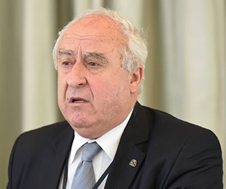 M. Djurovic A small group met in Podgorica on March 28-29, 2015 to review the Academy’s progress on the New Paradigm project. The meeting was hosted by the Montenegrin Academy of Sciences and Arts. The group consisted of Heitor Gurgulino de Souza, Momir Djurovic, Garry Jacobs, Alexander Likhotal, Winston Nagan, Nebojša Nešković, Ivo Šlaus, and Alberto Zucconi. The discussion focused on a core set of conclusions that emerged from thirteen earlier conferences and more than a hundred published articles related to the characteristics of the new paradigm, new economy, employment, energy and ecology, education, global governance and cooperative security. It also identified a list of issues that still need to be addressed and key questions yet to be answered. The group agreed that the Baku meeting on April 30, 2015 should focus on the theme of governance and identified four issues for special attention – the social responsibility of science and technology, the future of multiculturalism, toward a human-centered concept of sovereignty, and international frameworks for a human-centered paradigm. |
|||||||
|
|
|||||||
 R. Ravi In their quest to capture reality, the natural sciences have reduced reality into parts and fragmented them into smaller and smaller segments, revered the smaller segments and started treating them as the whole till they lost sight of the whole; believed in a unidimensional empirical reality that demands physical proof for everything, tangible or intangible, thereby clinging to the notion that existence necessitates tangibility; espoused the doctrine of causal determinism that any state is completely determined by prior states, thereby implying that the future is determined completely by preceding events and physical laws; viewed complexity from a linear perspective; claimed that mind and matter are two ontologically separate entities. The social sciences are no better. They, in trying to know reality, aped the natural sciences: humans were reduced to atoms. The social sciences conformed pathetically to the existing norm then. To this day, regardless of how relevant they are to measure a human being, physical laws and sciences still influence (read determine) the social sciences. The need of the hour is transformation. A transformation that can peacefully usher in a new paradigm of thought. An all-inclusive, interconnected, transdisciplinary paradigm that treats human beings not as isolated atoms but as those interconnected within the larger framework of the society. A new paradigm |
in economic thought should be inclusive of a radical thought in ecology, law, social development, psychology etc.
Economics, if it doesn’t get transformed now, runs the risk of producing endless variations of econometrics, not cater to social and individual development and well-being. One word cannot form a book, one single part of a machine cannot perform the function of the whole; likewise, no problem can be solved or better yet, converted into an opportunity by looking at it in isolation. The human being has to be viewed in the context of the society he lives in. The WAAS project on New Paradigm focuses exclusively on the need for an inclusive science of transdisciplinarity that not just transcends conventional reductionist thinking and solves problems but turns crises into opportunities – not by ignoring the past and brushing away the lessons it has to offer but by not repeating the mistakes made and becoming conscious, which is fundamental to the process of social evolution. The WAAS project seeks to unify and reconcile economic welfare, psychological well-being, ecological safety, peace and security in the planet, individuality and social development. Accomplishment ensues when thought leads to action. Paradigm-breaking social transformation can occur when there is leadership in thought that eventually leads to ground-breaking action – the motto of WAAS. Ranjani Ravi Junior Fellow, WAAS |
||||||

A post-graduate level seminar course was organized by the World Academy of Art & Science and the World University Consortium at the Inter-University Centre, Dubrovnik, Croatia, on March 31-April 3, 2015. |
|||||||
|
We as humanity face new and exciting opportunities today, alongside multidimensional challenges. In order to effectively deal with them and promote peace, security and welfare for all, a new global paradigm in human development is needed. As Einstein said and our Fellows reiterate, the world’s problems cannot be solved by the level of thinking that created them. We require new ideas, new values, new systems, new organizations, and to head these organizations, transformational leadership. Such leadership is the focus of a new course being developed by WAAS and its partners. WAAS, in collaboration with the World University Consortium, The Mother’s Service Society (India), Person-Centered Approach Institute(Italy), Dag Hammarskjöld University College of International Relations and Diplomacy (Croatia) and Inter-University Centre (Croatia),conducted a post-graduate certificate course in Essence of Effective Leadership from March 31st to April 3rd, 2015. The course sessions were conducted at IUC in Dubrovnik and also made available online as a live webinar. The course faculty consisted of WAAS Fellows and subject experts who explored the topics of leadership,the role of WAAS and other international organizations in leading the world to a new paradigm, and the many facets of the transformational leader. Students completing the course were eligible for 2.5 units of ECTS (European Credit Transfer System) credit. The course comprised twenty lectures of thirty minutes duration each, followed by an hour of panel discussion and interaction. Every lecture analysed leadership from a different perspective, and the course effectively constructed the |
composite picture of a transformational leader. Transformational leaders are men and women of profound vision. They are in tune with unexpressed social needs, give expression to the subconscious aspirations of society that are striving to awaken, and act as catalysts for their realization. Empathy, compassion, humility, courage, emotional and social intelligence, and effective decision-making skills are some of their characteristics. Power, wealth and fame are of little value to them. They have a comprehensive outlook, reject dualistic thinking, and reconcile apparent opposites. They face setbacks with equanimity and strength, and convert challenges into opportunities. They think originally, and know that the unrealized is not unrealizable. They take responsibility for all and, guided by positive values, uncork the future.
Organizations too can play the role of leaders. International organizations that transcend the nation state and have an integrated view of world issues have the potential to take up global leadership and are better positioned to develop complete solutions. WAAS, in formulating a New Paradigm for Human Development, is taking up an extremely ambitious project to address all critical issues facing humanity. It is asking the question on behalf of the world, “Is there a solution to all our problems?” Through several conferences, research projects and courses, of which the Essence of Effective Leadership course is one, the Academy is attempting to formulate ideas that can lead the world into the future. The video recordings and lecture notes of the Essence of Effective Leadership course are permanently available online on the WAAS and WUC websites. The following is a summary of the lectures, with links to the video recordings, presentations and course materials. |
||||||
|
Introduction Ivo Šlaus Leadership is a central objective of the World Academy, as expressed in its motto, “Leadership in thought that leads to action”. True leadership is flexible and continuously evolving. Since human capital is the greatest of capitals, one of the responsibilities of leaders is the discovery and nurturing of talent and genius in all its forms. Human capital is best developed by leaders who feel love and concern for others. Authority and the power to take decisions need to move from an elitist minority of leaders to involve more and more people, the mark of good leadership being democracy.
Transformational Leadership Alexander Likhotal We need visionary leaders in order to effectively overcome the many apocalyptical problems we face and ensure smooth transitions from the past to the future. These leaders need to be strong, self-confident, yet humble individuals with the capacity to understand and creatively adapt to rapid changes. They must look far ahead, and importantly, in the right direction. Transformational leaders are passionate, but their passion is tempered by reason. They are guided by an ethical vision, and at the same time, do not see in black and white. They have an integral view of the world and all its issues, and aim for balanced, inclusive development.
Leading Through Values Bohdan Hawrylyshyn All great changes begin with a bold dream. Only one who is inspired can inspire others and become a leader. Values, being the source of inspiration, are fundamental to leadership. Contrary to the belief that success is in staying ahead of the competition and in greater personal consumption, it is cooperation and self-giving that lead to greater satisfaction. Effective leaders feel responsible for all and respect diversity in culture and outlook. They communicate the values of the new paradigm by practising them, and inspiring others to embrace them. They seek to nurture human capital, promote political freedom, economic well being, social justice, and symbiosis with the biosphere.
Living Organization Pierre Antoine Barraillé Research shows that it is only one out of ten people who are creative and passionate at work. Others do not add value, and this points to a fundamental need to change the way we work. In order to achieve this, our work culture and belief system need to change, we need to raise the level of our consciousness. Leaders and organizations that collaborate instead of compete, want success for all instead of for themselves, and keep the unegoistic, long term global perspective in mind can play an evolutionary role in the emergence of a new paradigm of human development. The role of future leaders is to initiate, develop methods and processes, and then create the space for others to develop.
Decision-making Donato Kiniger-Passigli Great leaders need to take good decisions. They need to think strategically (have a vision), tactically (know how things should be done) and operationally (look into the actual doing of it). They need a comprehensive vision, systemic knowledge, imagination, foresight, lateral thinking, the ability to contextualise, recognize patterns, make analogies, resolve conflicting information, and hypothesize. Intellect alone does not make up for good decision making. Ethics is a necessary ingredient too. They need to take responsibility and work for the benefit of all.
Education for Leadership Pierre Antoine Barraillé Volatility, uncertainty and change mark this century. In a decade from now, only a quarter of the companies we know today will exist. We need to be adaptive, and our education must equip students to handle the complexity of the future. The model of education wherein the teacher imparts information to the student has to give way to a system that fosters creative thinking in the individual. Universities that follow the ‘one size fits all’ approach must identify the unique potential in everyone, and cater to individual needs. Education can develop the inner self, and foster teamwork, responsibility, egolessness, uniqueness, passion and compassion.
Leadership in International Organizations Igor Kolman International organizations and the leaders of these organizations, with their transnational perspective, are best posited to identify global challenges and define solutions. The world is faced with globalization on one side, and fragmentation on the other. Therefore, better than the nation state, it is these organizations with their access of a vast knowledge base, that can build coalitions, become the new centers of power, and solve international issues. Just as the European Union did not replace the state or the government, but took the lead in European cooperation, all international organizations can lead in the process of human development.
Social Power Winston Nagan Social power is the outcome of the process of social interaction. Social process implicates people, values, institutions, and resources, all of which coalesce in different ways to form social power. There are contestations for those values that people need and desire. Power pervades society; it is implicated in every value for which people contest – wealth, well-being, enlightenment, respect, skill, affection, rectitude, aesthetics; and every value is implicated in power. There are various forms and strategies of social power. One example is that of non-violence Gandhi used to transform not just the victim but also the victimiser. Social power can facilitate the process of democracy if it is made transparent, responsible, and accountable. This power can address all major social concerns at all levels.
Challenges & Opportunities Božo Kovacevic It is paradoxical that though our educational institutions try to inculcate skills and leadership qualities in our youth, competent, trustworthy leaders continue to be a scarce resource. Recent financial crises underline the critical need for effective leaders. Leadership is the complex interaction involving leaders, followers and the environment. Therefore, the followers also have an influence on leadership and decision-making process. There are many attributes of a good leader – self-confidence, self-awareness, strength, decisiveness, treating others as one would like to be treated.
Disruptive Leadership Tibor Tóth Franklin Roosevelt implemented the New Deal in order to tide over the American Great Depression. Today, we face many challenges that may spread, develop into a cluster of crises and result in a socio-economic crash. There is dysfunctionality of distribution at the global level. Economies need to be reignited. The level of unemployment is high. Therefore, we need a new global New Deal. The younger generation being an important segment of the working population and of society as a whole, must be integrated in this New Deal.
Spiritual Leadership András László Management is about doing things right. Leadership is about doing the right things. Spiritual leadership is about doing right things right. Spirituality is an essential element in leadership and enterprises today. The transformational toolbox of a spiritual enterprise consists of vision, ethics, values, trust, meaningfulness, higher purposefulness, a sense of community, co-ownership and a higher level of leadership consciousness. Inner transformation is as pivotal as the outer transformation. It requires genuineness, integrity and authenticity. The power to bring about this change is within. Everyone has the ability and potential to access this power. |
Process of Leadership – Energy Conversion Garry Jacobs Accomplishment is a psychological and social process. Effective leaders are able to awaken aspirations, release social energy, focus it into a directed force, and transform it into effective power that results in skilled action. Individuality – the capacity to think for oneself, and to act on one’s own understanding, values and beliefs – is a key characteristic of effective leaders, who identify with the aspirations, values and potentials of society and act in a manner that promotes the progress of the collective. Our challenge is to develop an educational system capable of preparing leaders who steer global society toward a New Paradigm.
Mind of the Leader Alberto Zucconi We cannot solve the problems of today using the same level of thinking that created them and by following the same leaders who led us into them in the first place. We need effective leaders who are responsible, empathetic, and inspire trust. Good leaders have consistent psychological, emotional and interpersonal skills. They empower others, and derive genuine satisfaction, not from being in control, but in seeing others succeed. Our education system has to be transformed so that it promotes the qualities needed for effective leadership, and prevent the development of those qualities that result in dysfunctional ones.
FEEDBACK FROM THE LEADERSHIP COURSE PARTICIPANTS “Even exceptional leaders may go wrong and may need a master who will break the leader’s self will and force him to obey a universally accepted will where everyone can be free. That master is morality, requiring that leadership and everybody must adequately define and enforce morality. I wish to thank you for the enriching discussion on the Essence of Effective Leadership.” – Fobia Abia Julius, Cameroon “I found most interesting the idea of defining leadership in terms of a positive person who is humble, values other people, follows a universal vision and is committed to accomplish.” – Dhurata Vrenozi, Albania
Leadership in Thought Winston Nagan The Socratic principle “know thyself” is what every leader must practise. He should have a clear idea of what his own ideas are, what others around him need and feel, what their aspirations are, and how these can be met. This requires social and emotional intelligence. He must be able to predict, identify and solve problems – these necessitate intellectual skills, knowledge integration, and the capacity to think creatively in the leader. The leader is different from those who are led in that he not only sees and understands from his own perspective but from the perspective of all others as well.
Challenges of Leadership in Education Sasa Kozuharov Transformational leadership creates qualitative and positive change, and transformational leaders are agents of this change. They are characterized by courage, openness and trust. They face reality and take risks. They lead by values. They adopt lifelong learning, and are always prepared for change. They are able to meet complex and precarious situations, and take decisions in times of uncertainty. They have visionary skills, and are able to create the future. Transformational leadership is the key to successful management of change.
FEEDBACK FROM THE LEADERSHIP COURSE PARTICIPANTS “An effective leader lives his values so that his followers can really perceive them as authentic.” – Maria Cristina Bivona, Italy “Intuitive leaders will (have to) be mentally strong … must also possess humility and empathy to accept all possible ideas that favours his/her goal.” – Divyapriya Chandrasekaran, India “Thank you so much for giving to me the opportunity to learn more about leadership. I really enjoyed the course… the course was so interesting.” – Lobe Joel, Cameroon
People-centered Leadership Alberto Zucconi We need to become a part of the solution, rather than part of the problem afflicting society. For this, we need leaders with empathy, respect and authenticity in our relationships, and possessing the emotional and social intelligence to reproduce these qualities in everyone they relate to. Effective leaders listen to others, recognize their emotions, and build good relationships. They are people-centered, take pleasure in serving others, rather than enslaving them. Effective leaders are those who give up the traditional leadership role and become members of the group. Organizations that have a participative style of leadership are more successful than those with autocratic management.
Social Insight & Future Vision Philip Koenig Everyone has the potential to move to the systemic level of thinking, take up a value we possess, and enlighten the world to any extent. All those great leaders who have made an impact on society have gone beyond social conventions, and dreamed boldly. They altruistically envisioned a human-centered future and worked towards it, with all their passion, energy and perseverance, overcoming obstacles and inspiring others. By changing our mindset, raising our consciousness and integrating our knowledge from the different sciences, we unlock human potential and open ourselves to new ideas and solutions.
Mikhail Gorbachev Alexander Likhotal The true leader is one who hears the footsteps of God (or the future) and catches up with his coattails. Leaders do not create or shape history, they uncork the future. In this sense, Gorbachev was a true, transformative leader. Gorbachev acted on unknown terrain with courage and morality. He humanized the Soviet system. His perestroika and glasnost, release of political prisoners, effort to catch up with the West in technology, improve workforce productivity, and hold free elections were all revolutionary moves. He was the chief architect of the end of the Cold War. Gorbachev could have compromised and stayed in power. But he heard the footsteps of the future, and voluntarily stepped down for the sake of the whole world. When we talk about the new paradigm, we are speaking of a number of principles Gorbachev followed.
Leadership in Thought that Leads to Action Ivo Šlaus The classical triad in leadership consists of the leader, followers and the task. All academies are based on this model. A network of individuals is a tremendous resource, and we are still tapping only the tip of the iceberg of the potential that WAAS and its members have. We need to maximize this utilization. More than the computer or any other invention, organization is the greatest technology that we have created. When the organization is in tune with the live spark in society, it grows and helps society prosper. Ideas have tremendous power. WAAS must look at a clearer formulation of ideas for a global New Deal that is required for a better future.
Life-Knowledge & Wisdom Garry Jacobs Historians and military strategists cannot explain the outcome of the Battle of Britain during WWII, unless they take into account the courage and conviction of the British leader Winston Churchill, and the spirit he aroused in his people. Beyond scientific, academic knowledge are the truths of life that the traditions have known all along, which have not yet been codified or proven scientifically. There is infinite power in ethics and values, integrity, decisiveness, humility, aspiration, silence, and non-reaction. A complete act is one that meets three psychological conditions – clarity of knowledge and full mental decision; enthusiastic emotional endorsement; and skilled execution through positive attitudes. Such an act has the potential for instantaneous miraculousness. One who masters this life knowledge can become a true transformational leader. |
||||||
|
FEEDBACK FROM THE LEADERSHIP COURSE PARTICIPANTS “One of the most striking aspects of leadership is Vision. I think that a leader must have Vision as one of the most important characteristics because a leader’s ability to paint the picture of the future directly influences their success, and the key is creating a powerful, clear, concise and compelling vision.” – Erjon Cano, Albania |
|||||||
|
Nuclear Realism vs. Idealism In an article published by the Bulletin of the Atomic Scientists recently, “Nuclear Romanticism: How nuclear “realists” falsely framed the nuclear weapons debate,” Ward Wilson argues that self-proclaimed nuclear “realists” are anything but realistic. “. . . this presumed dichotomy-between the hard-headed and the hopeful-hearted [is] no more than clever salesmanship on the part of nuclear weapons believers. It works for them to claim that they are “realists” . . . But the position carved out by most nuclear weapons “realists” is so unrealistic it would be laughable … if the matter were not so serious. The framework of the debate is wrong. This should be a discussion about whether nuclear weapons are useful. The clever (but false) framing of this as a contest about who is a “realist” and who is an “idealist” has helped one side regularly win the debate, but it has also biased the discourse, obscured important facts, and dangerously misled governments for 70 years.” The full article is available for free on the Bulletin of the Atomic Scientists website. |
Honorary Fellow  R. Guillemin During a recent Board of Trustees meeting, the Board established ‘The Honorary Circle of the Academy’ and granted Roger Guillemin (1924-) the membership status for his extraordinary scientific achievement. Professor Guillemin has been a Fellow of the World Academy since the early days of its establishment. He was recipient of the Nobel Prize for medicine in 1977 for his work on neurohormones. His discovery laid the foundation for brain hormone research and has had a profound impact on treating disorders like tumors, diabetes and thyroid. Since his retirement in 1989, Roger Guillemin has been creating digital art. |
||||||
 |
|||||||
|
4th International Scientific Forum, ISF 2015 Education, Climate Change and Economic Development University of Oxford, United Kingdom, Sept 2-4, 2015 European Scientific Institute, ESI – Interdisciplinary science on 5 continents
The European Scientific Institute, ESI is a global academic platform, connecting thousands of researchers from around the globe. ESI cooperates with universities and academic centres on 5 continents, organizing interdisciplinary conferences, forums and workshops. These academic events gather researchers from different disciplines, giving them an opportunity to present their papers, transfer knowledge and share best practices. ESI has bases in Former Yugoslav Republic of Macedonia, Portugal and Argentina and is an official partner of UNESCO’s World Science Day celebration and a United Nations’ Academic Impact member. WAAS is to establish collaboration with European Scientific Institute soon at the above international forum. Ivo Šlaus, Honorary President of WAAS is the keynote speaker. The Institute is an active supporter of the open access concept, publishing one of the largest open access interdisciplinary journals in Europe – the European Scientific Journal (ESJ). The journal promotes an agile and high-quality review procedure due to the excellent editorial team, composed of researchers from over 150 universities worldwide. Journal content is freely available to the public, contributing to the international dissemination of knowledge. ESJ’s website is visited by more than 2 million researchers annually. Numerous conferences are scheduled in the forthcoming year. New York, Buenos Aires, Tbilisi, New Delhi, Portugal, Barcelona, Amman and Oxford are some of the venues where interdisciplinary, multi-disciplinary and trans-disciplinary scientific approaches will be promoted. |
|||||||
Post-Graduate Certificate Course in Future of Education September 21-23, 2015, Inter-University Centre, Dubrovnik, Croatia |
|||||||
| Education is the most sophisticated technology evolved by human beings for conscious social evolution. Yet the slow incremental development of education in recent decades has not kept pace with the very rapid evolution of society. WUC and WAAS are projecting far-sighted concepts for a human-centered paradigm in education for the 21st century. The deficiencies of the present system have been well-documented and key characteristics of the new paradigm have been identified. This course will undertake an in-depth examination of essential changes in perspective, goals, values, content and pedagogy of higher education. It will present an opportunity for intense interaction among faculty and students to develop new ideas and strategies.
The lectures will examine various dimensions of the shift in emphasis needed and the means by which the transition can be brought about, including –
|
Course Leaders: Garry Jacobs, Winston Nagan, Ivo Šlaus, |
||||||
10th Conference on Sustainable Development of Energy, Water & Environment Systems Dubrovnik, Croatia, September 27-October 3, 2015 |
|||||||
|
The twentieth century was a century of oil; oil enabled the most fascinating period of growth in human history, fuelling international trade and bringing division of labour to global levels. Meanwhile oil, being abundant only in some regions, has created dependence on trading nations, has caused many conflicts, and the security of its trade paths has become one of the pillars of the current world order. The price of oil, one of the most important parameters of global economy, reasonably being kept higher allowing for scarcity pricing, based on vacillating agreement between cartel of producers and developed countries, sometimes is being used as a political tool. But oil is exhaustible and conventional type fuel which is cheap to produce may have already reached the peak, creating even higher pressure to control its production and trade. Shale oil and gas may postpone the day of reckoning for a decade or two, but will not change the paradigm. There are many alternatives, but which one is the best? Any energy future based on scarce resources will mean sticking to the same paradigm which is utterly unsustainable and keeping humanity on the edge of war. Decoupling development from the use of resources, using only those that are renewable and locally available, would enable a switch to a new sustainable paradigm. |
Nations would not depend on the scarcity of mineral resources but on the ingenuity of their scientists. With open access to knowledge new technologies would quickly spread and bring prosperity to the entire humanity. Although the goal is set, there are many ways transition may take place. The crucial will be integration of energy, transport, water, food and other life supporting systems reaping efficiencies. This special session is dedicated to contributions that would help gather knowledge of interconnections of insecurity and scarcity of resources, and of ways how decoupling of development from resources may help increasing security, thereby bringing sustainable development. Contributions on the politics of new paradigm, the economics of its implementation and also on technical layout are welcome. The session organisers are: |
||||||
|
First International Conference on ANTICIPATION 5-7 November 2015, Trento (Italy) The Anticipation conference is organized by the UNESCO Chair in Anticipatory Systems, together with the World Academy of Art and Science, International Society for the Systems Sciences, the Advanced Design Network, and the Department of Sociology and Social Sciences of the University of Trento. Anticipation is coming to the fore as an emerging field of study that is influencing a wide variety of disciplines. This international conference will explore the interaction among anticipation, uncertainty and complexity. Some questions that we intend to raise are these: When does anticipation occur in behavior and life? What types of anticipation can be distinguished? What structures and processes are necessary for anticipatory action? How can anticipation be modeled? A better and more complete understanding of anticipation and its effects will improve theories and models of individual and collective human behavior and its consequences. The ability to anticipate in complex environments may improve the resilience of societies facing threats from a global proliferation of agents and forces by articulating uncertainties through anticipatory processes. To know more about the conference, please click here. |
|||||||

New Paradigms: The World 300 years after Newton* |
|||||||
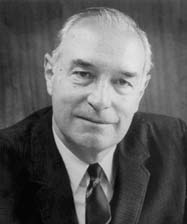 H. Cleveland Government officials, or those who seek public subsidies and permessos, must argue their case with the metaphors of physics, the methodologies of microeconomics, the mathematics of cost-benefit analysis, and discounted future values. What people want, how far they will follow the leaders, is ascertained by survey research, the scientific sampling of “public opinion”. In the modern marketplaces of ideas, the means of exchange and measure of values are numbers. What can’t be counted is treated as an “externality” ? that is, a disturbingly relevant factor that just doesn’t fit the current fashion in systematic thought and is therefore put on the shelf to think about later. To regain our common sense, the informatization of society requires us to rethink the very fundaments of our philosophy; to rethink an economics in which value inheres in scarcity; rethink a governance based on secrecy; rethink laws based on ownership and rethink management based on hierarchy. It’s not limits to growth but limits to thoughtlessness, unfairness, and conflict. The best interdisciplinary instrument is still the individual human mind. – Harlan Cleveland |
In his day, Newton like his contemporaries, fought against the supremacy of philosophy and theology over science, but never intended the separation of science and philosophy. After the Second World War, concepts of government and economics underwent further changes. It was now considered to be the state’s duty to provide citizens with a certain minimum standard of living and to provide social security for the disadvantaged. At the same time, the state became responsible for maintaining a certain standard in industrial activities in order to prevent economic depression. These post-war modifications initiated the creation of the welfare state and the expansion of the public sector. – Augusto Forti and Sam Nilsson |
||||||
|
From the Editorial, Cadmus Vol I Issue I, October 2010
* Edited by Sam Nilsson and published in 1987 by WAAS. |
|||||||

Cadmus is a journal for fresh thinking and new perspectives that integrate knowledge from all fields of science, art and humanities to address real-life issues, inform policy and decisionmaking, and enhance our collective response to the challenges and opportunities facing the world today. Contents of the Current Cadmus Issue – May 2015
Eruditio, the e-journal of WAAS, complements and enhances the academy’s focus on global perspectives in the generation of knowledge from all fields of legitimate inquiry. It also mirrors the academy’s specific focus and mandate which is to consider the social consequences and policy implications of knowledge in the broadest sense. Contents of the Current Eruditio Issue – February-April 2015
|
|||||||
